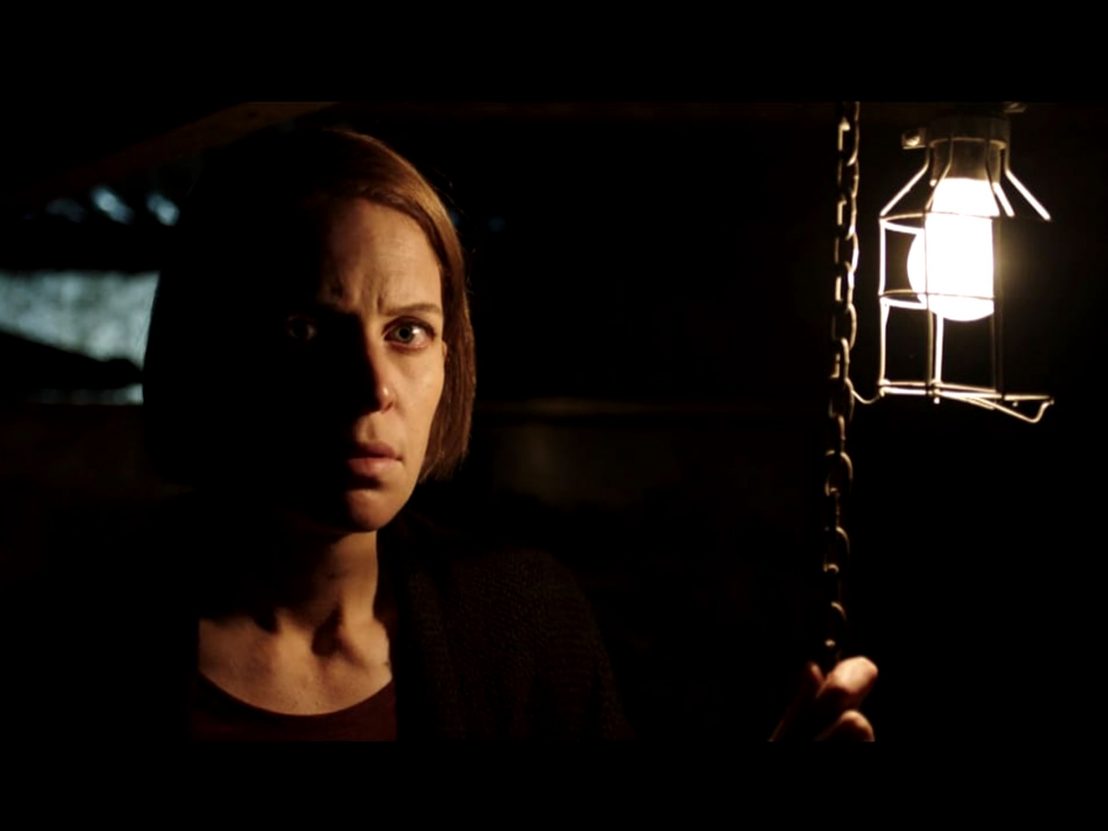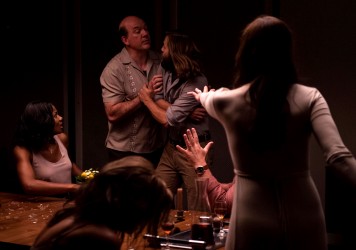
For the second year running, the Fantasia Film Festival in Montreal presented a collection of short genre films directed by women under the banner ‘Born of Woman’. The strand takes its title from Macbeth, the Scottish king who could not be killed by a man born of woman, and evokes the man who would defeat him, Macduff, who “from his mother’s womb / Untimely ripped.” The iconography of this passage hints at the dissociation between a woman and her body, a subject ripe for exploration.
The best shorts from this year’s ‘Born of Woman’ programme leant towards the complexities of femininity and physicality. Crossing a variety of genres and from a number of different perspectives, they covered a broad spectrum of ideas, feelings and tones. In Justine Raczkiewicz’s excellent Waste, protagonist Roger is precise, awkward and very clean – he also picks up medical waste for a living. He has recently moved into a new home that he shares with his roommate Olive, who works in a kitchen. Olive has a passion for cooking and invites Roger to share in her increasingly macabre culinary adventures.
Shot in pastel hues, Waste has an upbeat tone. Olive, especially, seems full of life and curiosity, though beneath the surface she is clearly very lonely. She lives for cooking and yearns to share that special part of herself with her new roommate. Roger is socially awkward and easily taken in by Olive’s charms, though he seems reluctant at first to dive into her cooking, which veers towards cannibalism.
Rather than using bright colours and an almost musical tone ironically, Raczkiewicz’s vision for the world unveils the loneliness of living brightly. Roger acts as a filter by which we can see Olive at her best and most vulnerable; a character of great ambition who seeks human connection. Her desire to use human body parts in her cooking seems to be an attempt to connect not only with other people but with her own body, as she struggles to relate to those around her.
Raczkiewicz’s film is comparable to Anna Biller’s The Love Witch in spirit. It finds pathos in beauty and horror in bright, colourful facades. Without suggesting that women have a unified perspective, as female filmmakers gain prominence within genre cinema, it becomes increasingly apparent that there exists an alternative means of expression that breaks with the taboos and expectations of traditional genre narratives. Often mistaken as parody, these three films in particular, pay homage to a different set of cinematic conventions that challenge the victim role of women within horror.
The other major highlight of ‘Born of Woman’ was Undress Me by Amelia Moses. With a distinct student film feel, it boldly explores the physical deterioration of a college freshman after she has sex at a party. Subverting expectations about identity and sexual politics, Undress Me does not draw easy lines between its character’s experience with sex and her rotting flesh. It is not apparently about STIs or sexual abuse, but rather bodily dissociation.
From the outset, the film’s protagonist seems out of touch with the world around her. She is at a party and surveys the room, mimicking the behaviours and appearances of those she picks out as confident and capable. She renders herself almost as a blank slate and throws her body into a sexual encounter awkwardly and aggressively. She was not drunk, she was the aggressor and there are no allusions to STIs: in the aftermath, her body quickly starts to rot.
In the mirror she pulls a hanging piece of skin below her eye like a strip of string cheese. The effects feel gruelling and textured, becoming increasingly graphic and bloodied. Rather than have self-mutilation sourced to a moment of trauma, the short hints at an increased and persistent dehumanisation. Blunt and ruthless, the film’s greatest asset is its unflinching portrait of gore, which literally deconstructs this girl’s laboured distrust of her own body.
Another standout was Creswick, an Australian thriller about a woman returning to her childhood home to visit her father. She remembers the nightmares of her youth and worries about her father who seems increasingly absent minded. It features some of the creepiest furniture I have ever seen in any film. A fibrous stop-animation from Spain, Dead Horses, explores the horror of war through the eyes of a child unable to grasp the finality of death; and finally, the narratively thin but atmospherically rich, The Last Light, about a little girl whose sister goes missing feels raw and immediate.
In 2016 the first ‘Born of Woman’ strand was so successful that it travelled across North America. As a continuation of that initial project, this year’s edition further challenged social mores and expectations while championing filmmakers who might be the future icons of the genre. Rather than engaging in tokenism, the programme reveals that, given a platform, women filmmakers will rise to the occasion.
Find out most about ‘Born of Woman’ 2017 at fantasiafestival.com
Published 24 Jul 2017

By Katy Vans
Karyn Kusama and St Vincent’s Annie Clark are among those contributing to an all-female anthology film.

Read part one of our countdown celebrating the greatest female artists in the film industry.

The American filmmaker talks sex, love and everything in between.